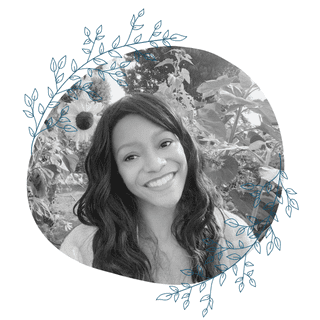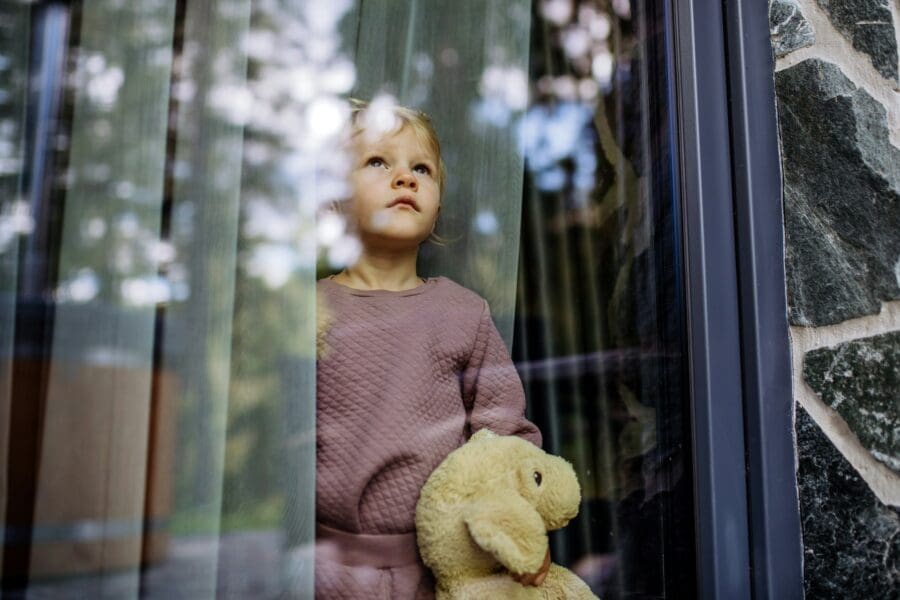Losing a parent hits you in a way that words can hardly define. It’s a deep, all-encompassing ache that settles into your core and steals the breath right from your lungs.
My mother got sick in December of 2022, and after weeks on life support, she passed away in January of 2023.
Truthfully, most of 2023 felt like a blur. I was moving through my life with a heaviness in my chest and a million thoughts swirling around my head.
Many of my mornings began with the question: “When will this pain stop?”
I was living in a fog.
The fog can make it feel like you can’t see a way forward. But trust me, you can get through it.
Here’s what helped me the first year after my mother died:
Growing My Support System
One of the biggest things that helped me was connecting with people in my support system and finding additional support and resources.
I went online to see if I could find others to connect with and found that many people on the internet were searching for the same answers that I was looking for.
We all wondered: “Is how I feel right now normal?” and “How long does grief last?”
There were so many people online on platforms like Reddit, looking for support, compassion, and community just like I was. I even found several content creators and mental health professionals on Instagram and TikTok sharing their stories and words of encouragement openly.
Grieving a parent can be a private process and that is okay. But while searching online for answers, I learned that it was okay to be open about my feelings when I was ready.
Finding someone who can empathize with how you feel can make the weight of grief a little easier to carry. You can find community in a forum, a Facebook group, or even within your own friend circle.
The takeaway: It can be powerful to know that you are not alone in coping with grief. Connect with others that understand what you’re going through. They’re out there.
Talking with Friends and Family
While finding online support was helpful, it couldn’t replace the comfort of a warm hug from a loved one or giving my best friend a call to just say how broken I felt to someone outloud. Talking to friends and family gave me a space to acknowledge my feelings and find comfort in the connections I still had. It made me pause to express my gratitude and love for the people around me that were by my side.
If you are grieving a parent, I encourage you to use this time to ask for patience and support from your loved ones. Sharing your grief with your friends and family may help you feel less alone as you do your best to cope.
For me, sometimes all it took was hearing a funny story about Mom to bring a smile back to my face. People whose lives she touched came forward to share recipes and sayings she had shared with them. Many I hadn’t even heard of!
Having conversations about my mother now can still sting, but it also helps me honor my memory now that she is gone. Holding space for conversations about the parent you lost may help you honor yours too.
The takeaway: Make time to connect with the people you care about to help you process all of the confusing emotions that can surface from grief. The anger, the guilt, the crushing feeling that life just isn’t fair. All of these feelings are absolutely valid, so be compassionate towards yourself by making space for them.
Making Space for Grief (and Life)
Grief is different for everyone, and there’s no “right” way to grieve. I learned that I needed to adjust my work and social life to deal with the grief triggers and waves of expected (and not-so-expected) emotions that I was feeling.
Before losing my mother, I was a busy bee who juggled work and school deadlines without much thought. Although an introvert, my social calendar was often filled with brunches and coffee dates with close friends. I had recently moved to a new city and was slowly starting to meet new people.
That all changed after my mother passed.
In that first year, just getting out of bed felt like it was as far as I could go.
My days were spent shuffling from bed to the kitchen in a slow haze that at times felt like it was on repeat. I found myself craving to eat foods my mother cooked, watch shows that reminded me of her during childhood, and spent hours feeling frozen as I looked at photos of her from our last visit.
I remember reading so much online about complex grief, hypervigilance after trauma, and the physical symptoms of grief. I had it all. And I knew right away grief was exactly what I was facing.
On the toughest days, I struggled to give myself permission to take a break and move through my day more slowly.
But, I talked openly with my close friends about what was going on, and they were supportive. The act of giving myself permission to go slow took time as a chronic overachiever.
I knew I needed to finally pause to rest and that it would require finally slowing down.
The same went for making changes in my social life. Spending time with loved ones was important, but I also needed time for myself to process everything that happened. I started saying no to invitations when I knew I needed a quiet night in, and to my relief, everyone understood.
It wasn’t about shutting everyone out, but about creating space to process my grief and take smaller, softer steps with myself.
The takeaway: While grieving a parent, you may need to make big or small adjustments to your schedule. And that is okay.
Finding a Path Forward After My Mother Passed
The road ahead is still a bit foggy now in 2024, but it’s still clearer than it was the day I left the hospital and my life forever changed. I know in my heart that my mother’s memory will always be a part of me. With the support of my friends and family, I’m learning to navigate this new normal, carrying the memory of her with me as I move forward.
You will learn how to navigate too.

Summer West
I’ve experienced grief personally and know how difficult it can be to carry alone. Joining the Embrace Your Grief project is my way of giving back by destigmatizing grief and shedding light on topics that often go unspoken. I want to help create a safe space where people can feel comfortable being themselves and sharing their stories.








Leave a Comment